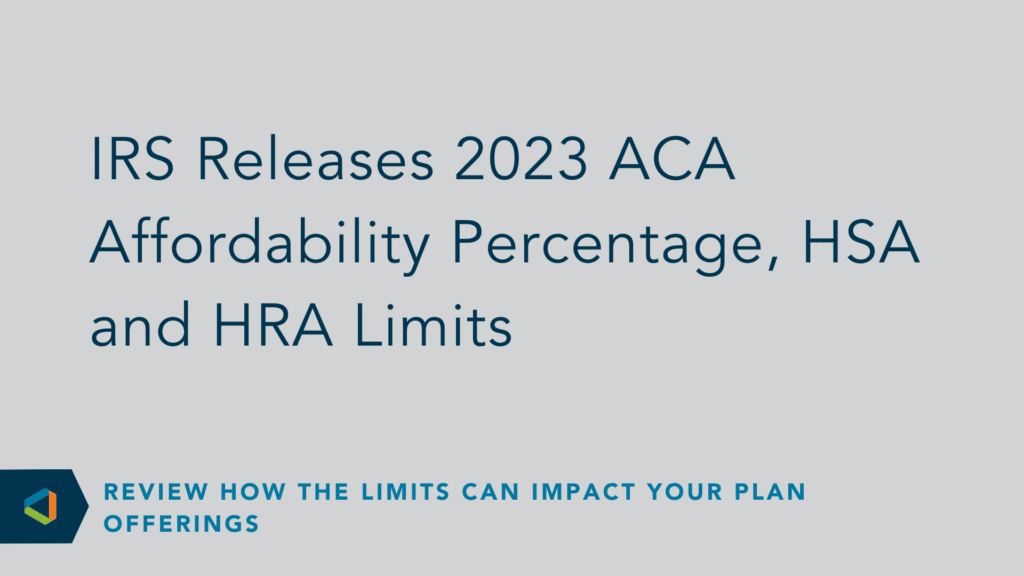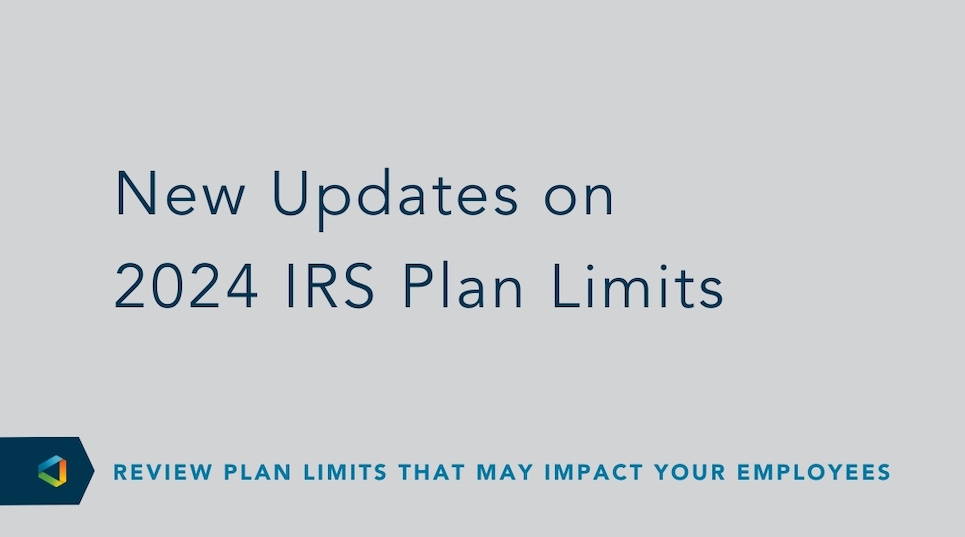Compliance Confidence
Will the Inflation Reduction Act Impact Your Health Plan?
Will the Inflation Reduction Act Impact Your Health Plan?
On August 16, 2022, President Biden signed the Inflation Reduction Act. While employer-sponsored health plans are not directly impacted by the Act, there are ways the new law could impact health and other benefit plans.
Insulin-Related HDHP Safe Harbor
For plan years beginning after December 31, 2022, the Act provides a safe harbor that permits plans not to lose their high deductible health plan (HDHP) status because the plan covers certain insulin products before the individual meets the plan’s deductible. This provision of the Act codifies and expands on previous IRS guidance expanding the list of preventive care benefits an HDHP can provide prior to satisfying the minimum deductible without impacting health savings account (HSA) eligibility.
Prescription Drug Prices
The Act gives the Centers for Medicare & Medicaid Services (CMS) the authority to negotiate prescription drug costs with pharmaceutical companies and applies caps on the cost of certain drugs under Medicare Part B, such as insulin. Because of this, industry experts anticipate that prescription drug prices for participants in employer-sponsored group health plans could increase. This cost-shifting would lessen the blow to pharmaceutical companies that would be selling prescription drugs at lower prices to Medicare and Medicaid enrollees.
ACA Subsidy Extension
One of the 2021 American Rescue Plan Act (ARPA) provisions was higher Affordable Care Act (ACA) premium subsidies in the Exchange for people who purchase health insurance through Healthcare.gov or a similar state marketplace. These subsidies granted eligibility to a larger pool of individuals than are typically eligible. ARPA increased the amount of the premium tax credit and eliminates the subsidy “cliff” that prevented anyone with income four times over the federal poverty level from receiving a premium tax credit. Under ARPA, these provisions would have expired at the end of 2022. The Inflation Reduction Act extends them through 2025.
As Applicable Large Employers (ALEs) know, full-time employees receiving a premium tax credit can trigger an employer shared responsibility payment. When more premium tax credit subsidies are available, the likelihood of increased employer shared responsibility payments rises. Employers are encouraged to review their health plan with these premium subsidies in mind to ensure that the coverage they offer is affordable minimum essential coverage.
Because health care costs continue to rise, while ACA affordability percentages remain quite low, many employers may be looking to implement an individual coverage health reimbursement arrangement (ICHRA) as a solution. By offering an ICHRA, employers can meet their ACA compliance responsibilities by allowing employees to purchase their own insurance on the Exchange.
While the Inflation Reduction Act may not directly impact employer sponsored health plans, employers could still feel the ripple effects. With open enrollment beginning soon for many employers, now is the time to meet with trusted advisors to map out a strategy that allows both the employer and employee to benefit. If you have questions about the Act or ICHRAs and if they are right for your company, contact your OneDigital consultant.
For more on the latest compliance and regulatory updates, register for the session: Need-to-Know Quarterly Compliance Recap for Employers.
Share
Related News & Updates

Article
IRS Releases 2023 Benefit Plan Limits
10.19.2022

Article
2023 IRS Employee Benefit Plan Limits
12.07.2022


